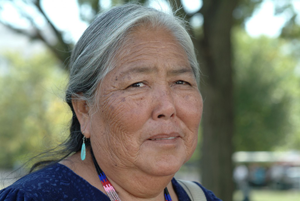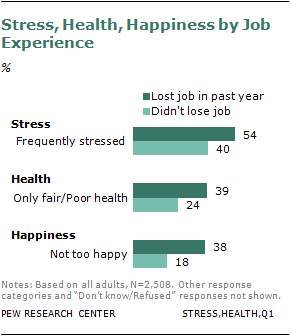- Home
- News
- Features
- Topics
- Labor
- Management
- Opinions/Blogs
- Tools & Resources
Are You Unemployed Over 55? Grey Haired And 55 Or Older Need Not Apply
By R.W. GREENE— To judge from unemployment rates, you might think it’s not too hard to pull off the trick of finding a job while having grey hair and being 55 or older.
After all, the unemployment rate last year for people aged 55 and older stood at 6%.
That number has even improved slightly in the first few months of 2013.
That’s better than the population as a whole, whose 7.5% unemployment rate for April 2013, reflecting a slowly improving economy, was greeted with cheers and balloons in many quarters (although not Republican ones).
That 6% rate for the 55-plus population was much, much better than the rate for other slices of the population.
If you were between 16 and 24 years old, for example, you were facing an unemployment level that’s almost three times worse—around 16%.
For African Americans, the unemployment rate last year was also in the double digits, 13.8%. For Latinos, it was 10.3%.
And if you had no education past high school, your unemployment rate was also worse than the national number, at 8.3%. (The latter number is limited to those aged 25 and older.)
For these groups, the 6% unemployment rate that the 55 or older group enjoys is something to drool over and dream about.
But in fact, that 6% figure hides some grim realities for the 55 or older population, realities that those other groups don’t face.
Six percent is not so great when you find out that it was double the rate in 2006.
Six percent is also not so great when you find out that it is close to being the highest unemployment rate for that group since the Labor Department started keeping records.
The highest rate, 7.4%, was reached in August 2010 — a year after the Great Recession was declared officially done and over with — Mission Accomplished, as it were.
The 55 or older group is also spending much longer periods in the unemployment line compared to other groups.
The Heldrich Center for Workforce Development at Rutgers University found that 52% of older unemployed workers were pounding the pavement (or refreshing their browsers) looking for a job for more than two years before they managed to find a new job.
For those younger than 55, fewer than a third had to search that long.
Another 34% of older workers spent between one and two years looking for work.
For those younger than 55?
Only 28% needed required that long a time to find a new job.
55 And Older Your Career Is Over – Older Workers Give Up Looking For Work
Labor Department figures also show that the number of older workers who have simply given up on ever finding a job have skyrocketed.
At the beginning of the Great Recession, 53,000 older workers were classified as “discouraged” — defined as those who have not actively searched for a job in the previous four weeks.
Five years later, in December 2012, the number of discouraged workers over 55 stood at 247,000—almost quintuple the earlier number.
Other ways of looking at this bad news: Almost 2 million of those aged 55 and over were unemployed in December 2012, up from 859,000 five years earlier. And 49% of this group was counted as long-term unemployed in December 2012. Five years earlier, the figure stood at 23%.
To be sure, there are glimmers of hope.
The December 2012 discouraged-worker figure was an improvement from the month before (254,000), and the number continued to shrink into early 2013.
However, discouraged workers are not counted in the calculations for unemployment rates, so the trend is not simply another way of looking at the over-55 unemployment issue; it is in addition to it.
What is especially worrisome — and what turns the issue into an especially pernicious public policy problem — is that older Americans have much less time to prepare themselves financially for retirement.
Having no income, they have no opportunity to sock away extra money for retirement. Moreover, they are using whatever savings they may have managed to put away just to survive life in the unemployment line.
Beyond the numbers, this was just not how is was supposed to turn out for the group known as Baby Boomers, the children of The Greatest Generation.
The boomers were supposed to be the generation with limitless futures. They were born during the greatest economic—and technological—expansion in history. It was said that this generation could and would achieve anything that it wanted, live longer lives than anyone ever before, without anything at all to impede their progress.
Perhaps the Great Recession should also be called the Great Reality Check.
Young And Older Workers, Two Sides Of The Same Coin
IMDb Lawsuit Shows Age Discrimination Kills Acting Careers
Law Firm Settles Age Discrimination Suit, Ends Mandatory Retirement
Lip Service? Poll: Corp Concern Over Lost Skills As Boomers Retire
Please subscribe to WWOW’s posts by email:
[subscribe2]
List your business in the premium web directory for free This website is listed under Human Resources Directory







